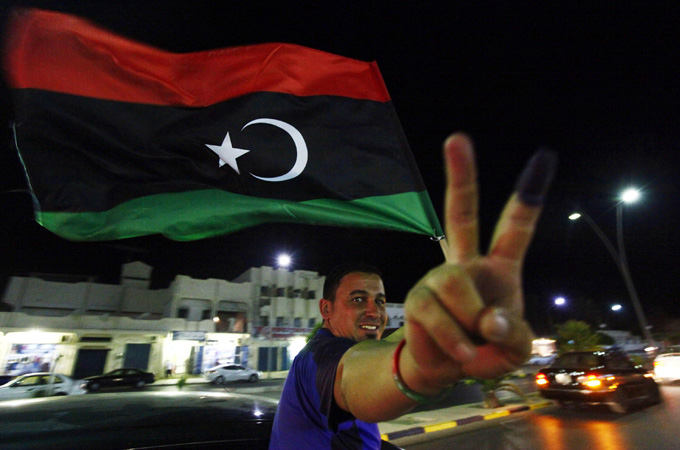Speaking in an interview with the website of the Strategic Council on Foreign Relations, Jafar Qanadbashi, referred to the Libyan parliament’s vote of confidence to Fathi Pashaga’s proposed cabinet by a majority of votes and the emphasis of the national unity government that it will not hand over the government and said: The Libyan Electoral Commission had previously proposed postponing the Libyan presidential election to January 24 and the House of Representatives had proposed a six-month postponement, and so far no date has been agreed upon a new date for holding the Libyan election.
Saying that it seems with regard to the current situation in Libya, there will be a long way to go before the elections, he noted: The Libyan people hope that the two very important presidential and parliamentary elections will be held in that country to end the divisions and the civil war; but so far, no preparations have been made for the elections.
Emphasizing the need to form a powerful government in Libya, the expert on Africa affairs referred to the vote of the Tobruk parliament in the east of the country for the end of the government of the then Prime Minister Abdul Hamid al-Dbeibah, adding: In Libya, forces did not accept formation of the former government and opposed the path that government was taking; in fact, foreign forces were more influential in this regard than the domestic forces to be the main factor in stopping the previous government.
Explaining the serious rivalries and alignments of foreign forces, as well as the role of their conflicting interests in the formation of the government in Libya, Qanadbashi continued: The decision by the Libyan parliament to remove trust from Abdul Hamid al-Dbeibah and appoint former Libyan Interior Minister Fathi Pashaga as his successor has caused controversy in the Libyan internal arena, and the two now consider themselves as the prime minister.
Concern over establishment of two governments in Libya
Saying that the national unity government has described what has happened at the parliament as a “funny scene” that violated all political and constitutional agreements, he added: Most analysts are concerned about the establishment of a parallel government in the country and the same scenario of Abdullah al-Thinni’s governments be repeated in the east and that of Fayez al-Sarraj in the west, because al-Dbeibah in a statement has rejected the parliamentary vote of confidence to Pashagha’s cabinet and is show offing in Tripoli with his forces and “Pashagha” also promised the people that his government would belong to all.
The expert on Africa affairs added: The government of national unity has announced that it will continue to operate as usual and has warned against any attack on its offices. Under such situation, the groundwork and the provision of facilities for holding elections have no clear prospect.
Stressing the need to write a new constitution in Libya to resolve some of the challenges facing the political process as well as holding the elections, Qanadbashi said: It will take a long time until such issues are clarified. The Libyans did not initially imagine that they would face such issues in order to hold the elections, and only spoke of holding elections under international pressure; but the more they went forward, the more complex and complicated problems they encountered.
He pointed to the criticism of some of al-Dbeibah’s financial corruption, power-seeking and monopolies in Libya, noting: There seems to be a kind of political chaos in Libya that no institution has the power to end. There is not even the possibility of a coup in that country, in some countries, when chaos occurs, the army takes over as the dominant power, but in Libya, there is no such power, and we have already seen that how Mr. Haftar, who wanted to play such a role, failed.
The analyst of Africa affairs added: Given Libya’s special circumstances, the country’s problems and turmoil may take a long time, unless issues are resolved to some extent through international oversight by re-establishing mechanisms separate from current trends.
Possibility of street protests
Qanadbashi stressed that the constitutional vacuum and lack of a legal mechanism to reconsider the parliament’s decision to remove al-Dbeibah and appoint Pashaqa in his place have caused a great deal of controversy in Libya. On the other hand, given that the four-year term of the Tobruk parliament in eastern Libya has been over for a long time, the vote he has given to extend his term is completely illegal. In protest to such a measure, al-Dbeibah also called on all Libyans to take to the streets to protest the extension of parliamentary powers and call for holding the elections.
Referring to the commitments made by the two prime ministers in holding the elections, he added: Given the differences between the Libyan groups over the prime minister, drafting the presidential and parliamentary election laws has been severely demanded, there are serious doubts about the possibility of fulfilling such promises and such differences are a threat to the electoral process in that country.
The expert on Africa affairs pointed to some concerns about the possibility of civil strife and divisions in Libya, saying: After the vote of confidence of the parliament, the new prime minister, Pashaga, accused his rival, who is heading another government in Tripoli, of obstructing members of his government from traveling from Tripoli to Tobruk and the parliament to take the oath.
Qanadbashi, while pointing to the concern expressed by the secretary general of the Arab League that the political arena in Libya is a threat to return the country to the difficult stage it faced before signing of the ceasefire agreement in October 2020, said: Under the current situation, it seems that what has been forgotten in this country is the situation of the people, who are experiencing a power vacuum for about 11 years, which has caused insecurity and stopped administration of all affairs.










0 Comments